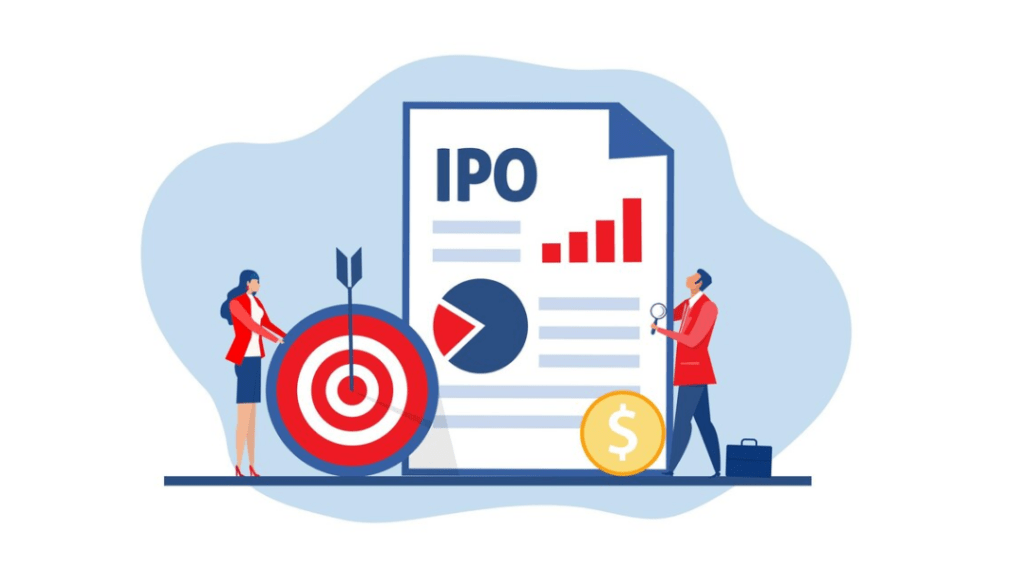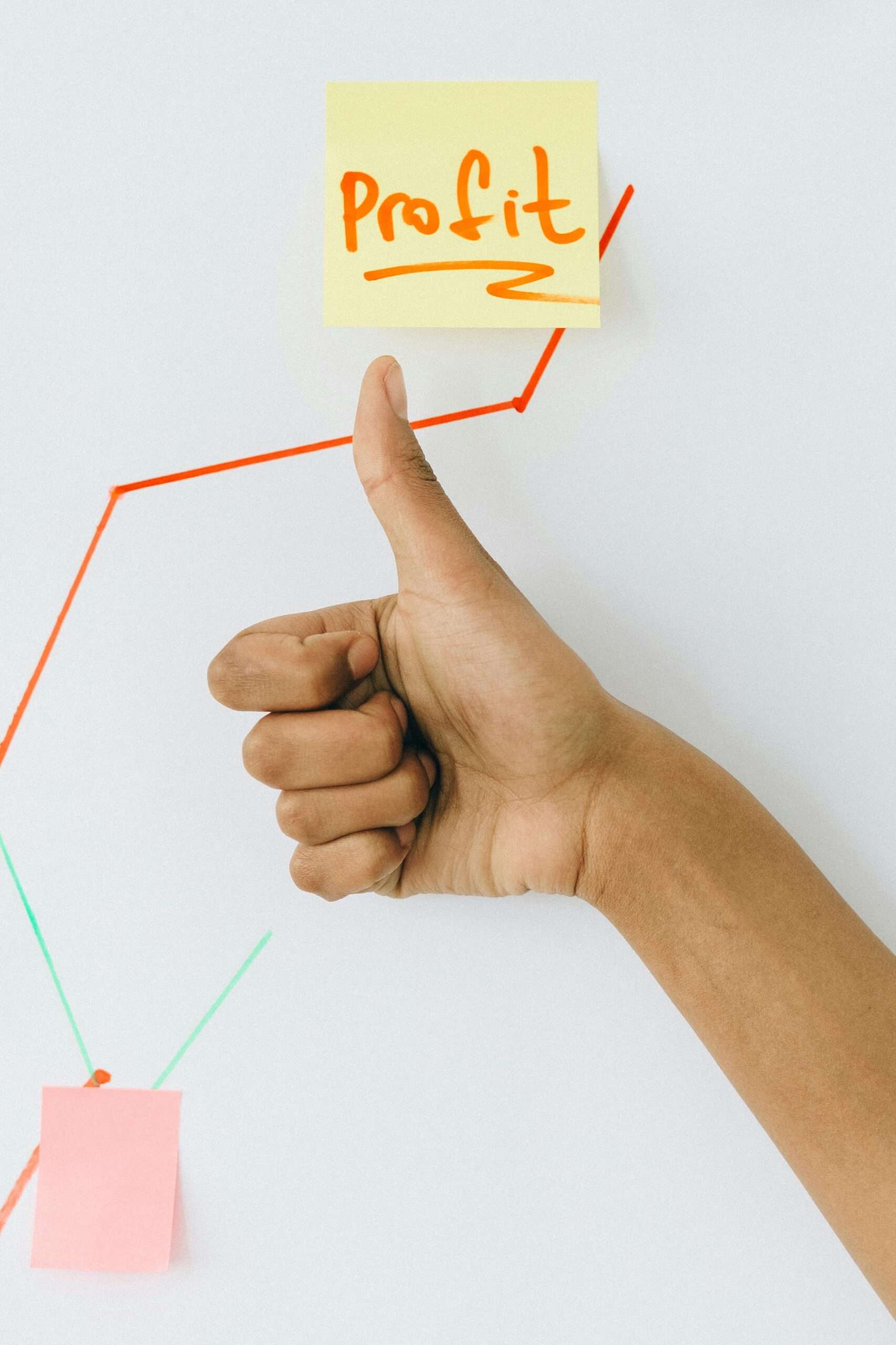
Image Source
Understanding IPOs
An IPO is an Initial Public Offering. A privately held business puts its shares on a stock exchange and opens them up for public acquisition through an initial public offering (IPO). IPOs are commonly perceived as enormous chances for financial gain, as prominent companies garner media attention by soaring in value after going public.
Even if they are definitely in style, you should be aware that initial public offerings (IPOs) are extremely dangerous investments with variable long-term returns.
Read more: IPO Allotment news on Stockfinz.
What happens when a company goes public?
The process of going public is demanding and time-consuming, making it unmanageable for most businesses to undertake on their own. In addition to preparing for an enormous influx of public scrutiny, a private firm preparing for an IPO must submit a tonne of documentation and financial disclosures in order to satisfy the Securities and Exchange Commission (SEC), which regulates public corporations.
For this reason, a private firm wishing to go public employs an underwriter, typically an investment bank, to provide advice on the IPO and assist in determining the offering price. Underwriters assist management in getting ready for an initial public offering (IPO) by preparing important paperwork for investors and setting up roadshow meetings with possible investors.
“To guarantee broad distribution of the new IPO shares, the underwriter assembles a syndicate of investment banking firms,” explains Robert R. Johnson, Ph.D., a professor of finance at Creighton University’s Heider College of Business and chartered financial analyst (CFA). “A percentage of the shares will be distributed by each investment banking firm in the syndicate.”
The underwriter issues shares to investors and the business’s stock starts trading on a public stock exchange, such as the New York Stock Exchange (NYSE) or the Nasdaq, once the company and its advisors have determined on an initial price for the initial public offering (IPO).
Read more: Latest IPO allotment in Indian Market.
Why do companies offer IPO?

An initial public offering (IPO) may be the first opportunity for the general public to purchase shares in a firm, but it is crucial to realize that one of the main goals of the process is to enable early investors to withdraw their capital.
Consider an initial public offering (IPO) as the closing of one chapter in a company’s history and the commencement of a new one, since many of the original investors wish to sell their shares in a start-up or new enterprise. On the other hand, investors in more established private businesses who plan to go public can also choose to have the option to sell all or a portion of their shares.
“The truth is that some angel investors got in before of the friends and family round,” says Tampa, a certified financial planner. “A lot of private capital, much to that seen in Shark Tank, is invested in firms prior to their eventual IPO.”
A corporation may also pursue an IPO in order to raise money or raise its profile in the public eye.
Businesses can offer shares to the general public in order to raise more money. The money made from the sale could go toward debt repayment, corporate expansion, or research and development.
Other methods of obtaining funding, such as bank loans, private investors, or venture capitalists, can be prohibitively costly.
An initial public offering (IPO) can give businesses a great deal of publicity. Businesses could desire the prestige and authority that frequently accompany being public, as this could also help them get better terms from lenders.
Should you consider buying an IPO?
Investing in initial public offerings (IPOs) entails risk, just like any other kind of investing. In fact, there may be more dangers associated with IPOs than with purchasing shares of well-established public corporations. This is because investors are making decisions with more unknown variables because there is less data accessible for private enterprises.
Even with all the tales you have read about people gaining large sums of money during initial public offerings (IPOs), there are plenty more that end badly. After five years, about 60% of initial public offerings (IPOs) between 1975 and 2011 experienced negative absolute returns.
Consider Lyft, Uber’s rival in the ride-sharing space. In March 2019, Lyft went public with a share price of $78.29. The stock price fell right away, and a year later it was trading at about twenty-one dollars. As of writing, the stock price was above $57, having partly rebounded. However, you would not have recovered your investment even if you had invested in Lyft at the time of its IPO.
Read more: Should you invest in IPO?
FAQs related to IPOs
What is an IPO?
It is a procedure by which private businesses sell their shares to the general public in order to generate equity capital from the public investors is known as an initial public offering (IPO). An organization that is privately held becomes public through the IPO process.
What happens when I see an IPO in the stock market?
A corporation that is privately owned transitions to being publicly owned through an IPO, or initial public offering. This implies that shares can be bought by investors on the stock exchange. Shares of that corporation may then be bought on a specific exchange, such as the Nasdaq or the New York Stock Exchange.
Are IPOs better than Stocks?
IPOs carry a greater risk and cost, but they can also yield large potential rewards. Conversely, regular stock investments are typically thought to be less hazardous and more available to individual investors.
Can I Face Losses with IPOs?
Buying an IPO can result in a loss, yes. Since it might open at a reduced price on the listing day, you might suffer a loss. Conversely, if it opens at a premium, you will make a healthy profit. In the main stock market, it is the most volatile trading method.
Are IPOs risky?
IPOs from new public companies are often labeled as volatile and high-risk due to their lack of experience in the public sector.



